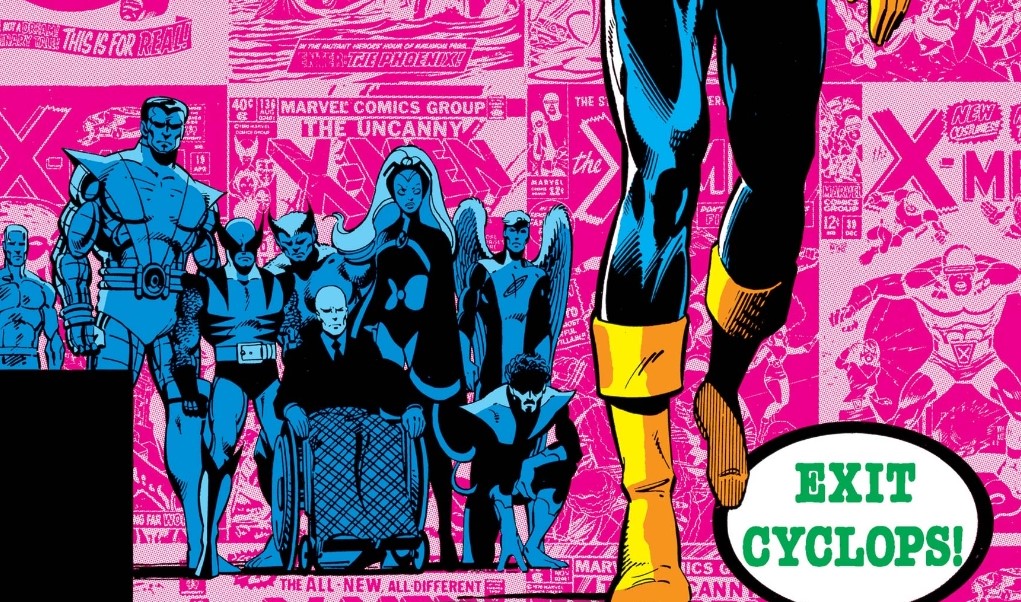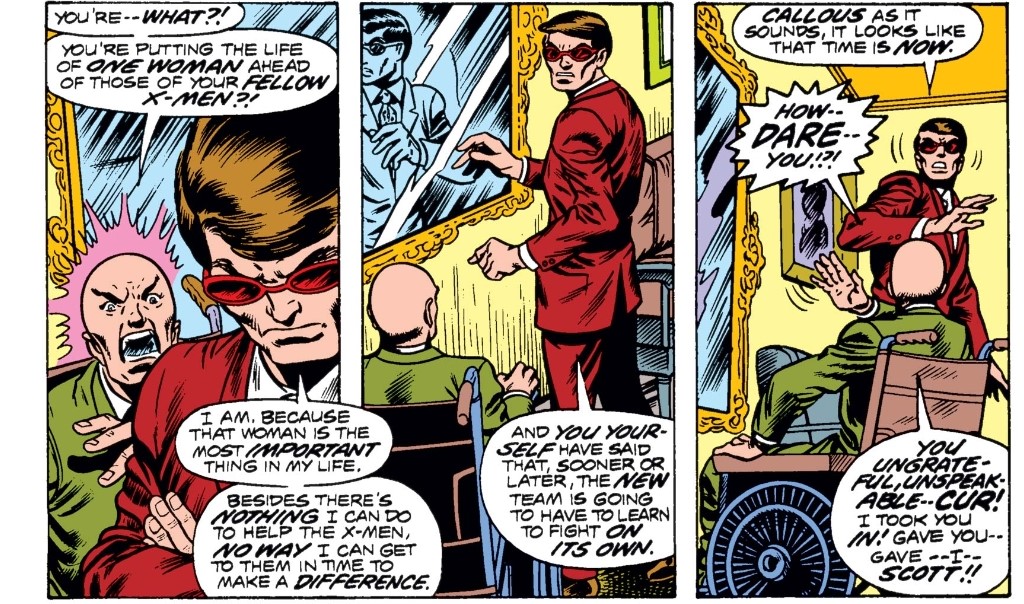Operating counter-intuitively, Claremont’s cultivation of Cyclops’ character works around dismantling the accomplishments that had previously defined him through external validation in the silver age. #xmen 1/7
The most obvious validation he receives is in winning the heart and affection of Jean Grey, a character who is established from the outset as a trophy over which the other (all-male) X-Men must compete, including Professor X. Scott wins this dehumanizing contest. 2/7
The second validation is from Xavier. Early issues build tension around who will serve as the “alpha” in the sense of leading the X-Men. Scott wins here too, this time by exhibiting fealty to an authoritarian patriarch. (Not coincidentally, he then wins Jean’s affection). 3/7
As a lover and a (surrogate) son, Scott is at his utmost when Claremont inherits the character, yet C immediately dismantles Scott’s status, first by portraying the leadership position as burdensome and undesirable, and then by inverting the power dynamic in his relationship. 4/7
Through a pair of Jean’s near-death experiences, Scott learns that he is more than Cyclops of the X-Men, that he wants love and happiness, and that the X-Men (more often than not) can get in the way of that. He openly challenges Xavier. 5/7
When Jean dies, he makes the sound decision to leave, to find purpose and meaning outside of the team, and to not simply fall back into the familiar paradigm that had previously defined him in a limited – and limiting - way. 6/7
Claremont’s Scott doesn’t win by playing the game; he wins by rejecting it – by seeing through it and choosing to cultivate a life outside of the X-Men – thus moving past his own desperate need for external validation and becoming a person in his own right. 7/7

 Read on Twitter
Read on Twitter









